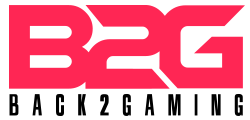If you think studying is the only way to improve your cognitive skills, then you are greatly mistaken. This is because playing games can also help you get a better memory, be more strategic and solve problems more effectively. Just keep reading to find out more.
How games help boost cognitive skills
Before we get into detail about which games are best for building brain power, it’s important to take a look at the mechanisms at work here. For instance, many skills are challenged and reinforced when playing both board games and video games such as critical thinking skills. This is because players need to make strategic decisions to win, and this requires evaluating the current evidence and thinking several moves ahead.
Similarly, playing games can help build cognitive skills such as memory, because the players need to remember the rules governing the game as well as vital information that can help them succeed.
Finally, playing games can help build cognitive skills because they encourage players to think creatively, and solve problems in a way that their opponents may not expect.
The best games to boost your brain power
Now you know a bit more about how [playing games can be good for your cognitive performance, let’s take a look at the best and most fun games you can choose for this purpose.
Boggle
Boggle is at its heart a very simple game to set up and play. The premise of Boggle is that you need to use the 16 letters that are displayed in the 4×4 grid to make as many words as possible. The challenge with Boggle is that the words you find must be made of letters that are next to each other vertically, horizontally, and diagonally in the cube. They also must be a minimum of three letters or more and you only have until the sand timer runs out to make them (3 mins).
One of the most fun things about Boggle is that it comes with a transparent cube with a tray for all 16-letter dice. Before the timer is set one player picks up the cube and shakes it vigorously to randomize which letters will be facing upwards. This makes it a much more visceral game and ensures that it will always be a fresh challenge as you never know which letters will be displayed in any given turn.
Chess
Ideal for boosting skills such as strategic thinking, focus, and memory, chess is more than a simple board game. Indeed, it can be thought of instead as a scaled-down war complete with infantry (pawns) and various higher ranks (rooks, bishops, knights, queens and kings).
Chess aims to get your opponent king into checkmate. This means that their king is under threat and cannot move out of this threat. There are many ways of achieving this, and chess is one of the only games where luck has no part in the outcome. Indeed, whether you win or lose is purely based on how well you know the game and how well you play.
What this means is that the best players spend a great deal of time memorizing and practising a variety of strategies and moves that can give them the edge when playing against an opponent. Indeed, practice is the key to raising the quality of your chess game, and the good news is that you can practice with ease by playing chess online. The benefits of this include being able to play against the computer, invite a friend, or play with someone in the same room without having to spend the time and effort of setting up your board.
Jigsaw puzzles
Many people think of jigsaws as a children’s game, but they can be an excellent source of cognitive challenge for adults as well. Jigsaws are usually made from robust cardboard and display a picture of varying difficulty on the front. They are cut into a certain number of interlocking pieces, and the more pieces the harder the challenge of fitting them all back together is. For example, a 500-piece jigsaw would usually be regarded as easier than a 2000-piece jigsaw. Some puzzles even have an added challenge of riddles or mysteries that can only be solved once completed.
While you may think of jigsaw puzzles as a simple way to spend your time they can be incredibly complicated, activating both the left and right side of your brain, and testing logic and intuition. There are even puzzles that are deliberately created to challenge the player and as such use an image of the same object over and over again such as the sky with clouds, or baked beans!
Some puzzlers have a set way of going about solving a jigsaw with many recommending that starting with the corners and edges is the best approach.
Sudoku
Uncomplicated at first glance, the challenge of sudoku puzzles is a dual one as it requires numeracy skills as well as an excellent memory. This is because the puzzle aims to place the numbers 1-9 in the 9×9 grid. However, the catch is that you cannot place the same number more than once in a single column, row, or inner square. Additionally, every row, column and grid must add up to 45. There’s even a much harder version known as killer sudoku where not only do the previous rules apply, but there is an addition of cages (areas of numbers) which need to add up to an additional figure supplied in small type in the upper left-hand box of each cage!
Crossword puzzles
Crossword puzzles are excellent for boosting cognitive ability because they encourage the use of a range of skills including memory, and language skills as well as problem-solving skills. A crossword aims to solve all the clues by writing their answer in the correct place in the grid. Many of these answers ‘cross’ each other via a shared letter which provides an added clue as to what the solution may be.
Some crosswords will start with a few letters in place to give you a hint and make the puzzle easier. However, cryptic crosswords will not, and are also widely regarded as the most challenging type of this puzzle as the clues require riddle-like problem-solving to be answered.
Word searches
Also known as scrambles and jumbles word searches are another grid-based game. This time the game aims to find all the hidden words in the grid as supplied in the accompanying list. Words can be forward or backward and can be displayed vertically, horizontally, and diagonally too.
The faster you can complete the word search the better you are, and the skills that this game particularly helps build include pattern recognition, vocabulary and language skills.
Video games
The final type of game, and for many their favorite, that can also help boost cognitive skills are video games. They come in all kinds of different varieties from first-person and third-person shooters to RPGs, MMORPGs, platformers, simulations and more besides. The aim of each game is quite different and tends to be unique to the specific genre or the game itself. However, depending on the type of video game you choose you can improve your puzzle solving skills, attention, focus, hand-eye coordination, and memory.
For example, in the famous Nintendo Series of Zelda games, there are many puzzle-solving opportunities that you have to succeed at to progress through the game. Games like Civilization on the other hand are ideal for developing strategic thinking skills, whereas Fruit Ninja and Guitar Hero are perfect for polishing your hand-eye coordination.


